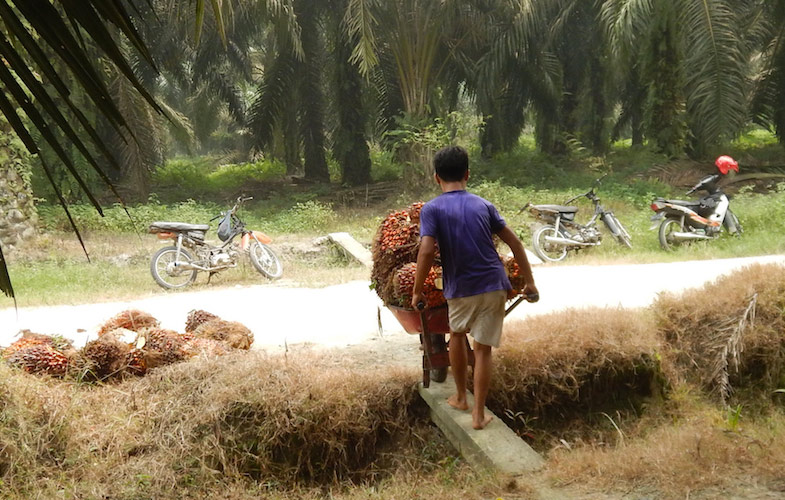発行物
Indofood (Salim Group)

Client summary – Indofood (Salim Group)
Indofood is controlled by Anthoni Salim, owner of the Salim Group, one of Indonesia’s biggest corporations.[i] In 2015, Indofood’s revenue was approximately USD 5 billion. Neither Indofood nor its palm oil division IndoAgri have adequate policies and practices in place for responsible palm oil production and sourcing.[ii] Indofood has been linked to a range of serious environmental and social problems including the exploitative use of child labor.
Major financiers of Salim Group (forest-risk sector adjusted)*
Major supply chain links
Indofood’s customers and joint venture partners include the global brands Nestlé, Unilever and Procter & Gamble as well as major palm oil traders Wilmar International, Golden Agri Resources, and Musim Mas Group. Indofood is partnered with PepsiCo in the production of PepsiCo products in Indonesia. However, a loophole in PepsiCo’s palm oil sourcing policy means that Indofood is exempt from meeting the higher environmental and social safeguards outlined in PepsiCo’s palm oil policy.
Community and worker rights violations
In 2013, hundreds of farmers were forcibly evicted from their land in North Sumatra by the military and police so that Indofood could gain access to land for its Sei Merah palm oil plantation. Conflicts with communities have also been ongoing in relation to Indofood’s Kencana Sari and Arta Kencana plantations in Lahat District, South Sumatra.[iii]
In 2015, field investigations and worker interviews on two of its plantation subsidiary company PT PP London Sumatra Tbk’s (Lonsum) plantations revealed use of child labor, exposure to highly hazardous pesticides, payment below the minimum wage, long-term reliance on temporary workers to fill core jobs, and use of company-backed unions to deter independent labor union activity.[iv] Such worker rights violations are not new to Indofood – field investigations in 2012 and 2013 revealed that their RSPO certified plantation, PT London Sumatra Rambung Sialang, relied on casual laborers to fulfill core plantation work – evading fair wages, health insurance and other worker rights. Child labor and hazardous working conditions were also documented on the plantation.[v]
Use of fire
Indofood has used fire to clear land for palm oil plantations, in violation of its fire prevention and response policy. Satellite imagery of late 2014 found ninety fire hotspots in one of Indofood’s estates in East Kalimantan. Field investigation in 2015 found evidence of active burning.[vi] Use of fire to clear land is illegal in Indonesia.
Rainforest and peatland destruction
Between 2012 and 2014 Lonsum cleared 1000 hectares of primary tropical rainforest in the Metau forest, East Kalimantan, to plant palm oil. The Metau forest was a critical habitat for endangered birds and other wildlife. Pollution and forest clearance have forced communities and wildlife to leave their homes.[vii]
Footnotes
[ii] AidEnvironment, 2015
[iii] AidEnvironment, 2015
[iv] Rainforest Action Network, OPPUK & International Labor Rights Forum (ILRF), 2016
[v] International Labor Rights Forum and Sawit Watch, 2013
[vi] Rainforest Foundation Norway & RAN, 2015
[vii] Rainforest Foundation Norway & RAN, 2015
*Companies with diversified interests had identified financial totals reduced to more accurately capture the proportion of financing that can be reasonably attributed to the forest-risk sector production or primary processing operations of the selected company. Where available financial information did not specify the purpose of investment or receiving division within the parent company group, reduction factors were individually calculated by comparing a company’s forestry assets relative to its parent group total assets.